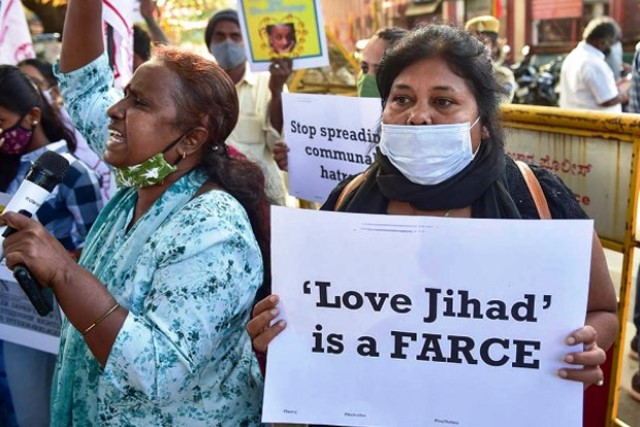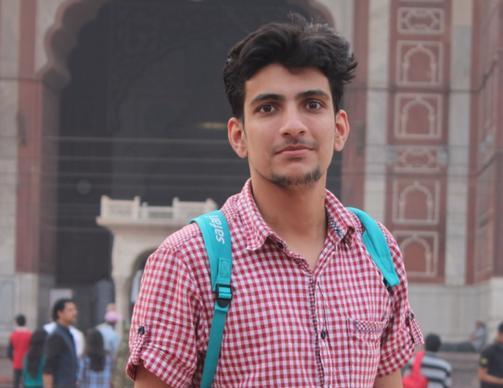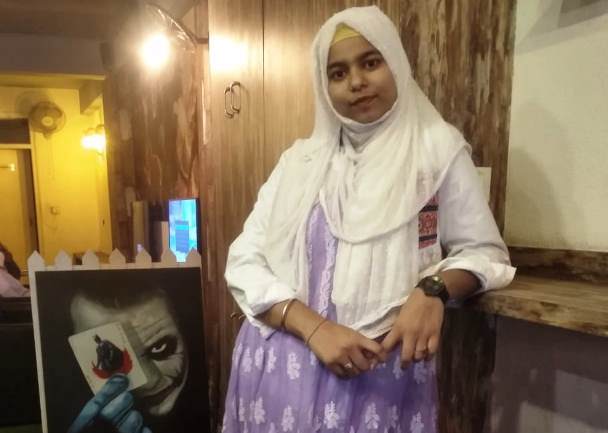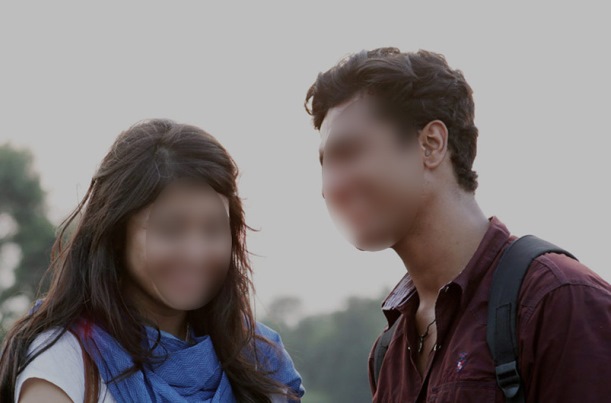Love jihad was always a fringe phenomenon for hardline Hindutva. It was in the shadows. Since 2014, it has become mainstream, like mob-lynching. And in the current scenario, amazingly, it is becoming law.
The love jihad law, or the politics behind the law, is yet again brazenly transparent. The central theme and the hyperbolic pitch are to corner, isolate, ghettoise and terrorise the Muslim community, yet again, polarize the bitter ground reality across the caste system in the Hindi heartland and the cowbell derived from the basic principles of dominant Hindutva. It is also to divert public attention from basic issues on the ground: mass unemployment, economic collapse across the organized and unorganized sectors, the massive farmers’ struggle at the various borders of the national capital, and that there is no clear guarantee when the vaccine against the deadly virus will reach India effectively, even while it is being administered in millions across the UK and USA.
Besides, there is another favorite diversionary tactic of the BJP, which also consolidates its fringe and mainstream support base: First, it was the Ram Janmabhoomi temple complex in Ajodhya. Now, it is the mythical new Parliament complex of ‘New India’: you can call it the mythical Hindu rashtra, a work in progress under the patron saints positioned strategically in the RSS headquarters in Nagpur.
Despite the love jihad law being pushed in some BJP-ruled states, the laboratory is yet again Uttar Pradesh, which has brought in BJP overwhelming at the hustings with a radical Hindutva icon who celebrates authoritarian actions as a virtue, at the helm. UP is also the state which provides the largest number of Members of Parliament in the Lok Sabha polls.
ALSO READ: ‘After Love Jihad, BJP Will Rake Up Uniform Code’
Of late, it has moved away from the ‘social engineering’ of the post-Mandal wave, with the rise of the OBCs and the minorities as a consolidated vote bank, and has decisively turned towards the heady concoction of united Hindutva. The repeated victory of Narendra Modi from a holy place like Varanasi, revered by Hindus across India, is more than symbolic.
Indeed, the caste polarization of the post-Mandal era, in UP, for instance, where Dalits would align with the Savarnas and the upper castes, but refuse to have alliances with the powerful section of the OBCs, like the Yadavs, is all but over. Landed Yadavs, also politically powerful, were always seen as oppressors in UP by the Dalits, even while Brahmins chose to align with the power apparatus, from the Congress, to BSP, to BJP.
Now, with a Thakur calling the shots, and calling it loud and clear across the layers of the power structure, a section of the Brahmins, deprived of power, seems to be in a dilemma. So are the others in the other backward castes.
In that sense, it is quite possible, that the Hindutva agenda is yet again working on its dream sequence by invoking the sectarian and vicious politics of love jihad. The dream sequence rests on the principle that all Hindus, across the caste spectrum, or most of them, would unite under the dominant and polarizing umbrella of Hindutva, whereas the ‘internal enemy number one’, as traditional RSS documents would tell us, should be totally isolated.
Thereby, it serves two purposes: one, the huge population of Muslims cannot forge an alliance with other secular groups among the Hindu communities, and thereby constitute a formidable electoral base. And, second, by uniting most Hindu communities under one umbrella, the so-called ‘internal enemy number one’ and its vote base is rendered vulnerable, almost ineffective.
In other words, this is but the first step towards the consolidation of a strategic Hindu rashtra, very much like using Adivasis against the minorities to polarize and consolidate in states lie Gujarat and Jharkhand, and thereby compel the Adivasis, who are outside the caste system of Hinduism, to join the Hindu varna vyavastha, with all its social, cultural and hegemonic trappings.
This new brand of ‘social engineering’ was first experimented by the BJP in Western UP before the 2014 Lok Sabha elections. And what was the heady and hallucinatory slogan used to achieve this successful polarization: yes, love jihad.
The fertile and prosperous green revolution belt of Western UP with its flowing mustard flowers, canal systems, sprawling sugar cane farms, sugar mills, and flourishing mandis, as in Saharanpur, Muzaffarnagar and Meerut, has always been a laid back zone of communal harmony and peace, with landed farmers across the kaleidoscope of religion prospering in the region. The landless Dalits or the poor Muslims and extremely backward castes were surely not so rich, but they were not starving either, or migrating en masse, as from Eastern UP or parts of Bihar.
ALSO READ: ‘Love Jihad Law Kills Beti Bachao Spirit’
Indeed, Dalits even own land in rural areas near Saharanpur, and the emergence of the confident mass of educated, young, modern and confident Dalits in the form of the Bhim Army, led by Chandraskhekar Azad, is a clear pointer about the changing political and social dynamics in Western UP.
The BJP never really had any base in this region, barring among the traders and shopkeepers, which was politically under the shadow of the late Chaudhury Charan Singh, and his sons, who were the leaders of the dominant Jat community, almost always in alliance with Muslim farmers and other communities. There were no communal fissures, and no animosity against the Muslims, even while sections of Dalits chose to vote for Mayawati’s BSP. This was compulsively and effectively shattered by the violent politics of love jihad by the BJP and its rabble rousers in Western UP in 2014.
Indeed, it was fake, mostly based on rumours, with no evidence on the ground. Muslim boys were not running away with Hindu girls. It was all stage-managed propaganda, propagated by mouth and social media like whatsapp, with fake identities and fake stories, backed by huge Mahapanchayats of the BJP where the Muslims were frontally attacked. The laid-back green expanse had suddenly turned bitter and vicious, and it was yet again hate politics which became the dominant narrative in this peaceful zone.
A lot of violence, bloodshed and dead bodies later, around 60,000-plus Muslims were displaced from their traditional habitats. They took shelter in refugee camps, in collective phobia. Many of them just could not understand what hit them. Later, journalists and fact-finding teams, including women’s groups, also found scores of Muslim women raped. It was terrible and heart-breaking.
Post-2014, the wounds seem to be healing, and the polarization has not sustained. Fake news has dismantled again and again. The politics of hate and violence, camouflaged under the propaganda of love jihad, seems to have subsided. The lost era of peaceful coexistence and harmony seemed to be gradually returning. And love jihad seems as much a figment of imagination, as the ‘acche din’ promised by Modi before 2014.
The united kisan movement in Western UP, post lockdown, has also played a major role in bridging the social fissures. The movement is growing stronger against the three central farm bills, and most factions of the Bharatiya Kisan Union has united in the struggle. Love jihad is not working here on the ground.
Indeed, in the three recent cases in UP, reportedly triggered by Bajrang Dal vigilantes, with the administration predictably following a set pattern, the love jihad propaganda has fallen flat. In contrast, love seems to have won over hate again, despite the angst, the suffering, and the violence, psychological and physical. Indeed, even parents have stood up for the idea of love, and have debunked the claim of love jihad.
Surely, India, and its cowbelt power apparatus, might find it a lucrative enterprise to float such divisive and discriminatory concepts, once seen in Europe when the Nazis came in with Jews targeted in all walks of life. However, the younger generations are not going to buy it anymore. Hopefully so.
Surely, they would want love, and an eternally happy life in togetherness. And they must get it. That will be a true victory of the purity and endurance of love, over the politics of hate.





